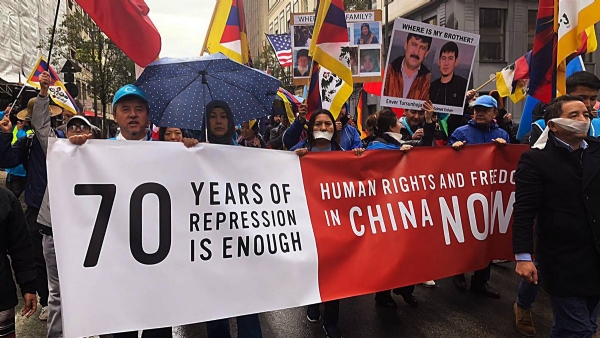Why India abstained from voting on holding debate on China’s treatment of Uyghur Muslims at UN
Notably, India has never supported country-specific issues in Human Rights Council, experts say.
Total Views |
Geneva, Oct 7: In the latest development, India abstained from voting on a United Nations Human Rights Council (UNHRC) resolution on holding a debate on the human rights situation in China's Xinjiang.

The draft resolution was on "holding a debate on the situation of human rights in the Xinjiang Uyghur Autonomous Region of China". However, it was rejected in the 47-member Council after 17 members voted in favour, 19 members voted against, including China, and 11 abstentions, including India, Brazil, Malaysia, Mexico and Ukraine.
It is pertinent to mention that the draft resolution on the situation in Xinjiang was presented by a group comprising Canada, Denmark, Finland, Iceland, Norway, Sweden, the UK and the US, and was co-sponsored by other countries such as Turkey.
Twelve of the 17 OIC member states with representation in the UNHRC also voted in favour of China on the resolution on Xinjiang. Four of these OIC countries abstained. Somalia is the only OIC country that voted in favour of the decision of holding a debate on the human rights situation in China's Xinjiang.
Notably, India has never supported country-specific issues in Human Rights Council, experts say. If India supports backs such a resolution, it can lead to similar moves by China on other issues.
This also comes at a time The resolution was a follow-up to a recent report by former UN High Commissioner for Human Rights Michelle Bachelet that exposed a wide range of human rights violations in Xinjiang.
Serious allegations of human rights violations against Uyghurs and other predominantly Muslim communities in China were brought to the attention of the UN Human Rights Office and UN human rights mechanisms since late 2017.

